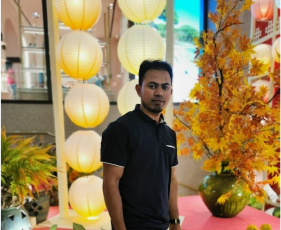The Art of Interpreting | Voice of the Expert
Language barriers are a commonly identified challenge among health practitioners in New Zealand. Both local and international research shows that limited language proficiency is strongly correlated with underutilisation of health services, reduced quality of care, increased risk of misdiagnosis and medical errors, and lower patient satisfaction.
A report published by the Ministry for Ethnic Communities in December 2024 highlights the impact of language barriers—alongside socioeconomic factors—on access to primary and mental health services, specialist care, and preventative health services for Asian and MELAA (Middle Eastern, Latin American, and African) populations in New Zealand.
This challenge is further intensified by the difficulty of securing qualified interpreters. Effective interpreting goes beyond mere bilingualism—it requires advanced proficiency in both the source and target languages, along with a deep understanding of technical terminology and cultural nuances.
Anayat Ullah, co-founder of the Burmese Rohingya Welfare Association (now known as Rohingya Association New Zealand), holds a Graduate Diploma in Interpreting from AUT. He emphasizes that interpreting is far more than simply knowing two languages. True language competency requires a high level of proficiency in both the source and target languages, such as Rohingya and English, as well as a solid grasp of technical terminology.
Anayat explains that many English terms and concepts do not exist in the Rohingya language, and regional dialect variations can further complicate interpretation. Even a slight misinterpretation of a word can alter the meaning of an entire sentence. For this reason, he stresses the importance of interpreting with accuracy—without addition, omission, or substitution. Impartiality is also crucial, and any potential conflict of interest must be disclosed.
He is aware of numerous cases where interpreting errors have had serious consequences for individuals and families. Interpreters must be extremely careful, as they may be wrongly accused of saying things that were never said.
Currently, there are around eight to ten Rohingya individuals in Auckland who interpret and may have received some training in the Code of Conduct and Ethics. However, Anayat notes that access to formal training remains a significant barrier. While he was fortunate to receive a scholarship and flexible work hours from his employer, many others face challenges due to course fees and time constraints from work and family commitments.
Although Anayat is passionate about interpreting, he does not see it as a viable career path at this stage due to the need for financial stability. He believes a coordinated approach involving agencies such as the Ministry of Education (MoE), Ministry of Social Development (MSD), Ministry of Justice (MoJ), Ministry of Business, Innovation and Employment (MBIE), and Ministry of Health could help address this issue. By training and hiring one or two full-time interpreters for rare languages like Rohingya, these agencies could encourage more individuals to pursue interpreting as a career.
